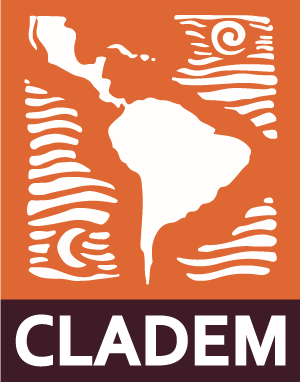Posicionamiento
When facing gender-based violence, abortion is a right: We say NO to PL 1904/2024
14 de Junio 2024
|
In light of the approval of urgency for Bill 1904/2024 last Wednesday (12/06) in Brazil, which shortens the legislative process, the Latin American and Caribbean Committee for the Defense of Women's Rights (CLADEM) reaffirms that the crime of rape is a form of gender-based violence that affects the dignity of girls and women around the world. The occurrence of pregnancy in these cases without access to the right to abortion protected by law since 1940 is equivalent to a form of torture by forcing the girl or woman to continue a pregnancy she does not want. We reinforce this premise in the context in which the Brazilian parliament proposes a legislative change that increases the penalty for abortion to 20 years when performed after 22 weeks of gestation, a penalty equivalent to homicide and less than the crime of rape (ten years), aggravating the barriers to legal abortion in Brazil. We also note that CLADEM has been discussing this issue since 2016 in 15 other countries in the Latin American and Caribbean region through the Forced Pregnancy and Child Motherhood is Torture Campaign (EIF/MIF).
Bill 1904/2024 criminalizes girls and women who seek legal, safe, and free abortion services after the 22nd week in all three legal circumstances - rape, a risk to the life of the woman, and anencephaly. The recommended procedure for these cases, based on scientific evidence, according to the guidelines of the World Health Organization, is fetal asystole. Before this legislative debate, the Federal Council of Medicine (CFM) determined the prohibition of the procedure, creating a normative barrier for healthcare professionals and services for victims of violence. The norm was suspended by a preliminary decision of the Federal Supreme Court (STF), stating the Council's incompetence to prohibit such actions. Currently, there is no gestational limit for legal abortion in Brazil and the country has few centers that offer such services, often located in large cities.
Seeking healthcare services after the 22nd week is a reality for many girls under 14 years old, victims of rape. The younger they are, the less knowledge they have about their bodies, which explains the late discovery of the pregnancy, only with the appearance of changes in the child's body. Also delaying the search for legal abortion services is the fact that these girls are threatened and afraid to report the sexual violence committed by someone close, a fear that coexists with threats from male violators. The gestational time should also be understood by the difficulties of access to adequate information and the existence of health services in their localities, or the need to await a judicial decision when the child is in a shelter because she was taken from her home after the report of intrafamily violence. There are several situations, all with state responsibility, with its failures and absences in the policy of comprehensive protection and full development of the child, the right to health information, and access to legal abortion, resulting in various forms of institutional violence.
In Brazil, only in 2022, 74,930 rapes were reported, including those of vulnerable individuals, with the majority of victims being black (black), mainly between the ages of 11 and 14, accounting for 59% of the total. Of these, 6 out of 10 victims are children aged 0 to 13 years, whose abusers are family members and other known individuals. In 2022, 14,293 babies were born to children aged 10 to 14, mostly in the northern and northeastern regions. These are girls who are victims of sexual violence and were met with forced motherhood as a response. We consider forced pregnancy to be an indicator of violence, lack of autonomy, discrimination, and appropriation of the girl's body by adult men. The state's failures in accessing legal abortion force an unwanted pregnancy and child motherhood.
Research on violence against children under 15 years old (CLADEM, 2016, 2020) indicates that continuing a pregnancy carries risks of maternal death, and higher rates of obstetric fistula, associated with young age and physical development conditions. Continuing with forced pregnancy impacts mental health, resulting in depression, anxiety, post-traumatic stress, and suicide. These girls are in a context of femicidal violence, which acts as a continuum and accumulation of other dimensions of violence. The approval of PL 1904/2024 highlights and expands the dimensions of this gender violence phenomenon against girls and women.
One of the arguments of the creators of PL 1904/2024 is that the criminal norm dates from 1940, a different time when late gestational interruption was an "unimaginable" reality for that era, and therefore the practice was not classified as a homicide. It is true that norms must be updated according to the present time, but should also be attuned to the legal commitments assumed by the State today. In 1940, we did not have the CEDAW Convention, the Belém do Pará Convention or the Maria da Penha Law. That is, updating legislation should be guided by the recognition of women's and girl's rights by the Brazilian legal system after the 1988 Constitution. So much so that rape ceased to be a crime against morals to become a crime against sexual dignity. It is not appropriate, in 2024, to propose legislative changes inspired by the mentality of the first half of the last century.
Therefore, we EXPRESS CONCERN about the purposes and justifications presented by the Brazilian Legislative Branch through PL 1904/2024 on the 30th anniversary of the Inter-American Convention to Prevent, Punish, and Eradicate Violence against Women, the Belém do Pará Convention. We CALL on the BRAZILIAN STATE to GUARANTEE real protection against gender-based violence in its multiple dimensions, especially for girls who are victims of rape and arrive at healthcare services with pregnancies over 22 weeks, according to a legislative interpretation based on the principle of human dignity, the comprehensive development and protection of children and adolescents.
A girl is not a mother, forced pregnancy is torture.

 Eje temático
Eje temático País
País Valoraciones
Valoraciones Visualizaciones
Visualizaciones
